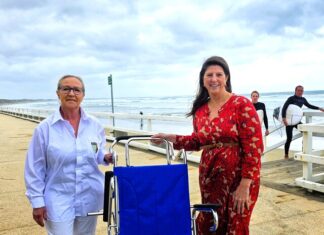KIM WATERS
The world changed for Drysdale’s Eddie Loughnan the first time he administered a polio vaccination to a child in southern India.
He realised just how much Australians had to be thankful for as the medicine went down.
After 27 years as a Rotary club member and a year as one of the service organisation’s district governors, Mr Loughnan expanded his horizons with a friendship exchange trip to India in 2003.
The long-serving Rotarian arrived back in Australia last month after a second India exchange with wife Val.
“This time we were checking up on a water purification system we funded for schools and the toilets we put in girls’ secondary colleges,” he said.
“In some of those schools the facilities were so bad the students stayed home because a lack of purified water meant they were constantly getting stomach upsets.
“Most Australian kids wouldn’t even realise how lucky they are to have access to clean drinking water and proper toilet facilities – it’s taken for granted.”
Mr Loughnan said a team of Indians joined the Rotary exchange last month to take part in India’s national polio immunisation day.
“Overall 180 million children under five were immunised and people often think that’s a lot but, with a population of over a billion, 180 million kids is just a drop in the ocean,” he said.
“At 7.30am on Sunday there was a huge line of women with their babies waiting for their two drops of the vaccine.
“The absolute enormity of the situation was just incredible.”
Mr Loughnan said more than 1000 children died every day from polio when Rotary International started its immunisation program in the 1990s.
“In India we never thought we’d see the end of polio,” he admitted.
“It’s taken a lot of hard work and a lot of money but last year the numbers were down to 49 cases for 2010.
“Rotary has raised $1 billion to buy the vaccines.”
Mr Loughnan said India’s poverty “hit” him when he arrived in the country.
“We really do take so many things for granted.”
Get the latest news to your email inbox FREE!
REGISTER






